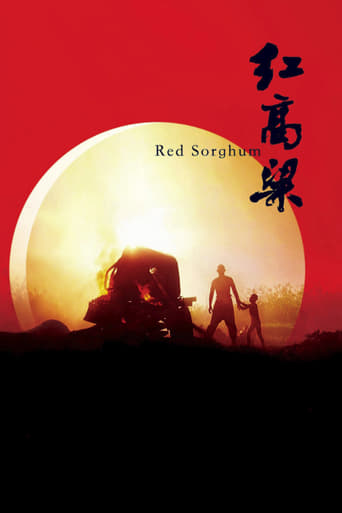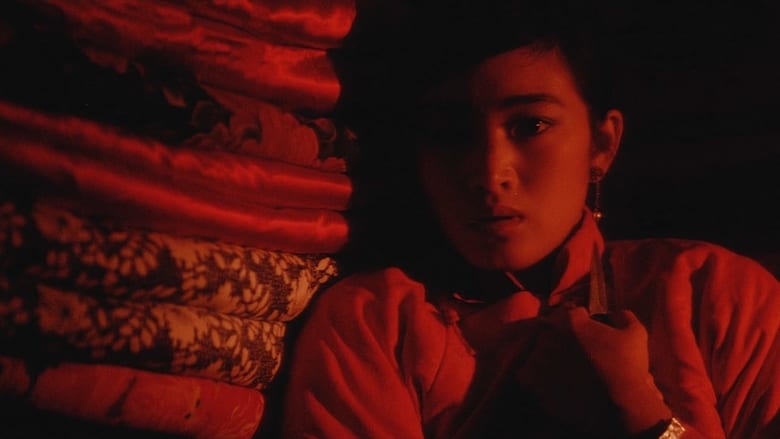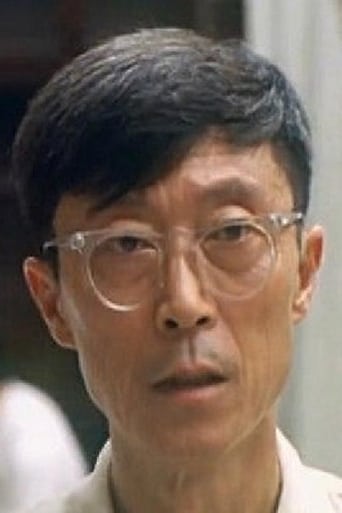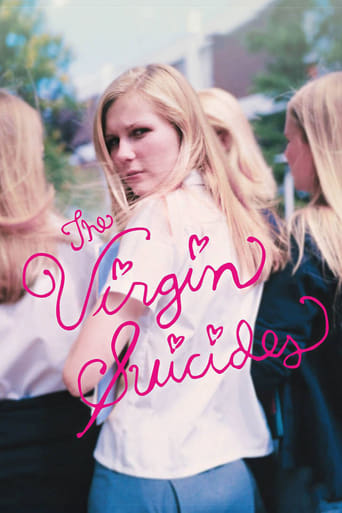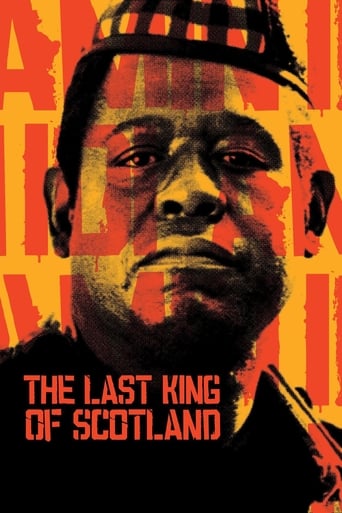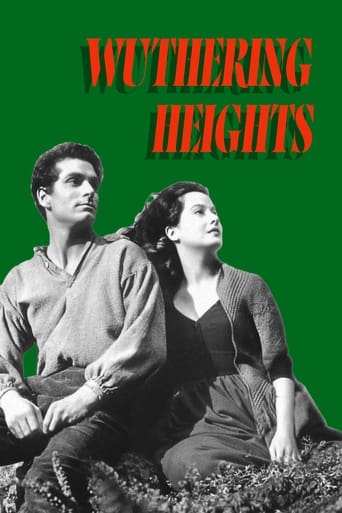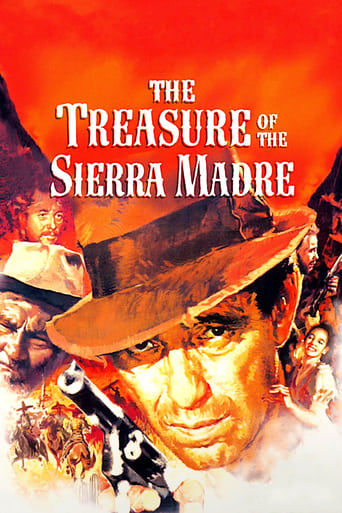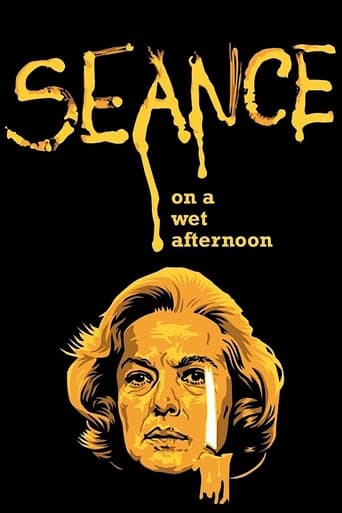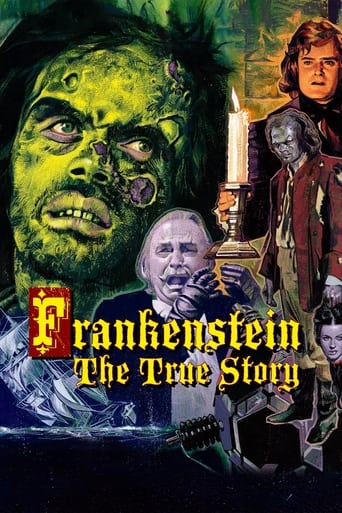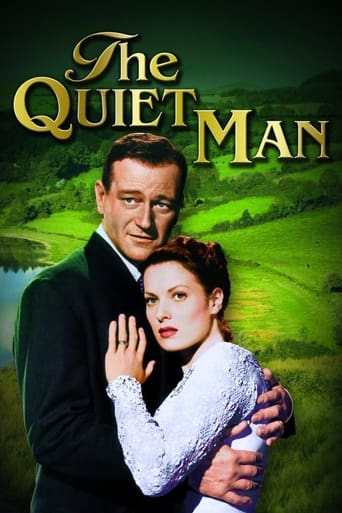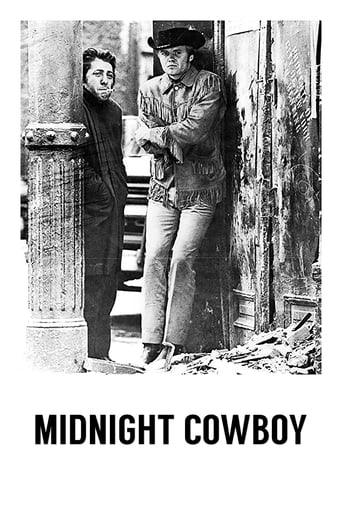Red Sorghum (1988)
An old leper who owned a remote sorghum winery dies. Jiu'er, the wife bought by the leper, and her lover, identified only as "my Grandpa" by the narrator, take over the winery and set up an idealized quasi-matriarchal community headed by Jiu'er. When the Japanese invaders subject the area to their rule and cut down the sorghum to make way for a road, the community rises up and resists as the sorghum grows anew.
Watch Trailer
Free Trial Channels
Cast


Similar titles
Reviews
Best movie ever!
Am i the only one who thinks........Average?
This is a must-see and one of the best documentaries - and films - of this year.
The movie really just wants to entertain people.
It's rare to find Yimou's films on terrestrial/free to air digital television. 'Raise The Red Lantern' is a fascinating film as well as the mythic 'Ju Dou' so I was keen to watch 'Red Sorghum' for the first time.It is a bawdy, earthy film yet also mysterious & complex as represented by characters such as the boy's Grandfather & the steward, Luohan as well as the bandit Sanpao. The sedan carriers sing a song mocking the bride yet cease when they hear her sobbing. A bandit attacks them but is fatally distracted by the young woman's beauty.It's reflected in the songs which accompany the film, from the bawdy & slightly grotesque (the bridal litter scene in the beginning) to songs sung in praise of a wine spirit, an older China of pagan rituals. It is about a peasant community with its own folklore (the disappearance of Big Head Li) & codes (Sanpao & the Grandfather, the ransom).'Red Sorghum' is about a land & the people rooted to its soil, their rituals & traditions, & following the Japanese occupation, how these survive as the Grandfather is literally covered in earth, & China re-born.The film is narrated (voice over) by the boy's adult self. It has a mythic kind of tone & mood. Ancestors occupy a special role in Chinese life & are venerated. Continuity is reflected by the boy's Grandmother, who asks the villagers to call her by her family nickname 'Little Nine'. Later, the story fast-forwards nine years to the narrator as a young boy.The story begins with a poor young woman forced into an arranged marriage though this strand is of secondary importance (in contrast to 'Raise The Red Lantern') as the story is about how she overcomes her dismal prospects (her father barters her for a mule, a comment perhaps on the treatment of women/of less value than a mule) & assumes a prominent role in the peasant community. The sorghum becomes a symbol of China, of its people. The fields can be dangerous & illicit, a place where bandits hide, but also a source of life & prosperity, the red wine that resembles blood & which is sacrificed to the wine spirit. Later, the steward & others make an even greater sacrifice for their land.The major turning point of the film is akin to the abrupt change of tone in 'The Deer-hunter' (structure), domestic scenes giving way to the brutal Japanese occupation. The scenes are unsentimental & all the more shocking for this. The sorghum fields are trampled down & crushed, like the Chinese people. The slightly comical butchers who worked for the bandit Sanpao are forced into a horrific choice, the scenes where the older butcher gently washes Sanpao & his poor young assistant driven mad by what he has been forced to do linger in your mind. Images reinforce points, here the Japanese are the real butchers.The film doesn't just depict the Chinese as passive, but proud & defiant. 'Little Nine' urges the villagers to avenge the Japanese's victims leading to the violent explosive denouement.It is a beautifully filmed piece of work, the red hue which imbues the cinematography to the indigo blue of the night skies with the moon high above. The final image of the sorghum swaying again in the red sunlight is a symbol of China itself & of its people, whatever history may throw at them, be it a decadent master to amoral occupiers & maybe even a one party state.
This was broadcast recently on Film 4 in the UK. I hadn't seen it for many years and I'm here to tell you it's an absolute classic in many ways.It's a wonderfully shot and atmospheric film - as you've come to expect from the director - and it runs a full emotional gamut from youthful exuberance, through growing maturity to angry armed resistance to the Japanese occupation.The sorghum wine itself, red and glowing, reflects blood, sacrifice, pleasure and pain.The compositions of the shots, again as you'd expect from this director, are painterly and breath taking. I found myself pausing the live action to fully drink in much of the framing. No martial arts, no special digital effects just glorious film making.The voice over works well to distance and frame the action - although there's a degree of unreliable narration.A wonderful film I urge you to see it.
It's 1930s China. Jiu'er (Li Gong) is sent by her father to marry the leper winery owner Li Datou. On the way there, there are fields of red sorghum growing wild. She goes home to deliver the mule from Li Datou. She is taken out into the fields by Luohan where they have sex. Li Datou is killed by an unknown assailant and the winery is left to Jiu'er. Luohan returns drunk and making demands on her. He is thrown out. After he sobers up, he urinates into the wine and picks her up like in the field into her home. Surprisingly, the urine wine turns out to be the best ever. That night Luohan leaves and Jiu'er has a child. Nine years later, Luohan returns and the Japanese arrive.It starts off as a funny quirky film. It has moments of originality. When the Japanese come, the movie goes to another gear and another level. It's jarring and compelling. The red color infiltrates everything like the film itself is bleeding. Li Gong makes a terrific debut. The final orgy of violence is shocking.
Well, I admit that I am a fan of Zhang Yimou's movies, but this film seems to me inept, ill-paced, tedious, poorly edited, and somewhat propagandizing in overall feel. Yes, some of the imagery and cinematography is stunning, yes, Li Gong is fabulous, but altogether, it doesn't seem to add up to much. There are long stretches of film with literally no movement at all, no narration, no sound (usually the last thing about which I complain!), and nothing happening. The lack of continuity or explanation of events makes for a disjointed story. It isn't helped by the extremely inept English subtitles which accompany the copy I viewed from my local library. I hope someone will release a version with a decent set of subtitles. Honestly, most of the international students I know, including those from China, could do a better job of translating the subtitles.All in all, this film seems promising but extremely amateurish, a quality which seems to endear it to those buffs of "art films".

